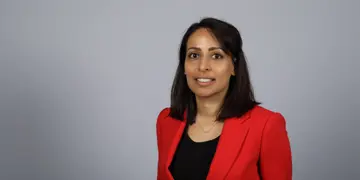Your BMA: direction
Your BMA: direction
How the BMA arrives at its big policy decisions
The BMA announced it would undertake an evaluation of the Cass review last month – the independent report on gender identity services for children and young people in the UK.
The review will be chaired by BMA board of science chair Professor David Strain. It includes looking at the methodology used to underpin the report’s recommendations.
Perhaps unsurprisingly, this news led to a great deal of member engagement – with some people incredibly supportive and some hugely critical of the announcement and our plans.
One thing we know, from existing policy, is that our members care about these issues and about providing high-quality healthcare to transgender patients. The BMA believes transgender and gender-diverse patients should have access to specialist healthcare. The association has argued that clinicians, patients and families should make decisions about treatment on the best available evidence, not politicians. This is a group that has poorer outcomes owing to a lack of equality of care.
In the light of these developments – and with so many members engaging with this news – I thought now would be a good time to discuss how big policy decisions are made outside of our major annual meetings and conferences, which are generally the primary way we decide on the association’s work.
For instance, between the resident doctors (formerly junior doctors) conference, which took place in May, and their meeting next year, resident doctor representatives are likely to make policy decisions on behalf of resident doctors. The same applies with our biggest policy-making platform, the BMA annual representative meeting. Lots of issues arise between those set-piece events and we have to be able to react.
Our primary method of doing that is through our principal executive committee, BMA council. Council is made up of democratically elected members from across the UK who represent all 199,000 of our members. Sometimes these meetings are held in closed, private, sessions for understandable reasons. But there has been a move, under the current leadership of Phil Banfield and Emma Runswick, to increase transparency of all council meetings, which has been well received.
Council meetings feature robust debate followed by a fair and free vote where everyone is able to have their say. That is the best process we have for making these decisions and while not everyone will agree with decisions – it is perhaps a strength and a weakness of having such a large membership that viewpoints are diverse – I think this is the right way to do things.
If you disagree with the decisions we come to, all I can say is that there is, in my experience, a deep, unrelenting, commitment from elected representatives and staff to do the right thing by our profession, our patients and our society.
That is the case when we are commenting on public health measures such as vaccinations or vaping and it is the case here. For those who suggest we shouldn’t comment on the actions of Government or national NHS leaders, what else would you have us do? This is our everyday work. We are a trade union and a professional association and we will give our members a voice.
I would like to address everyone commenting on the decisions we have taken. To those who have considered our policies helpful and to those who have criticised constructively, thank you for engaging with us. We are always listening. To anyone who has taken this opportunity to abuse members, elected representatives or staff – shame on you. This behaviour is unacceptable.
Your voice can still be heard even if you disagree with the decisions we make. We are always listening.
You can contact me via email RBChair@bma.org.uk or on X @DrLatifaPatel
Dr Latifa Patel is chair of the BMA representative body



